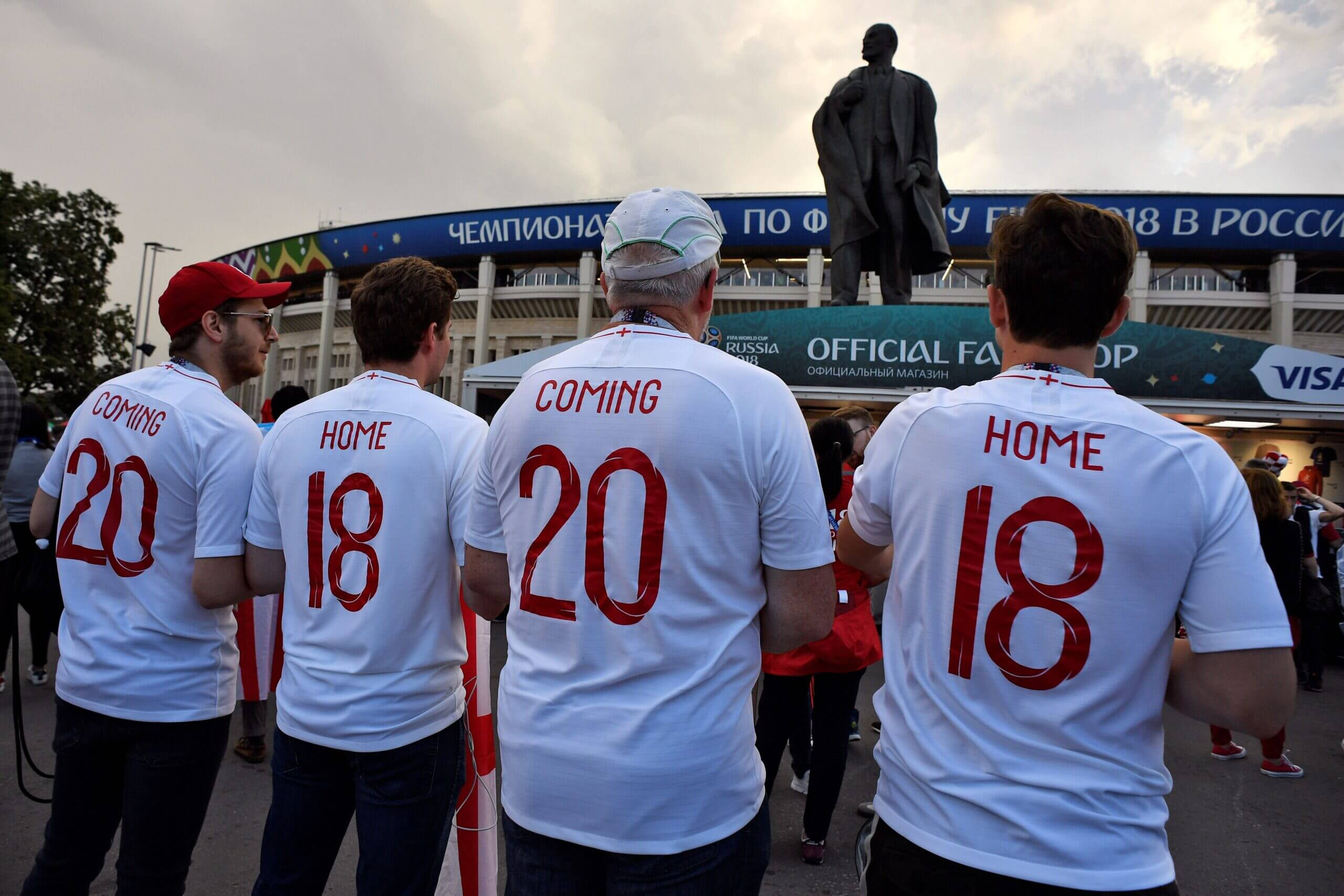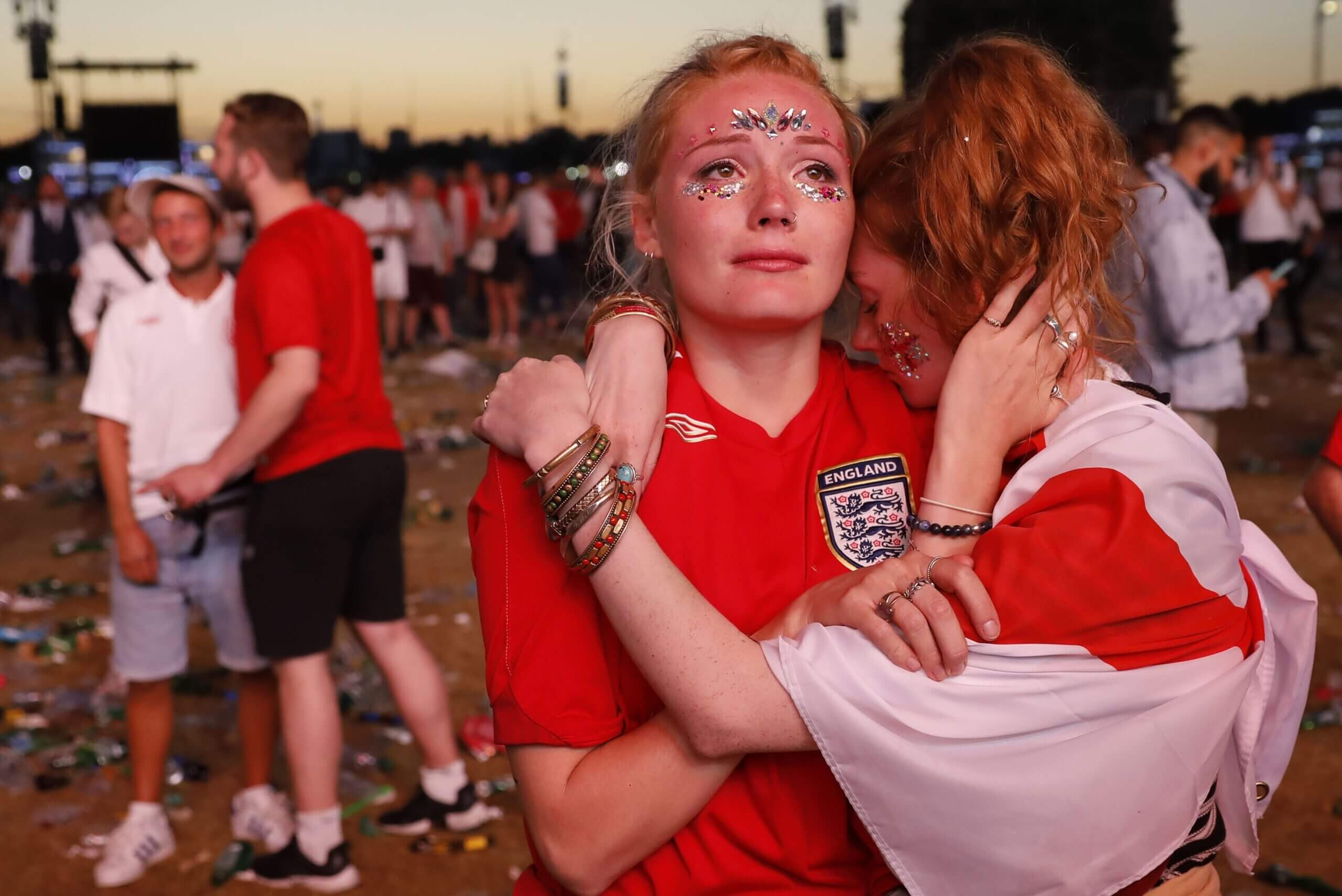As Euro 2024 ignites football fever across the continent, the familiar refrain of “It’s Coming Home” once again permeates the air in England. More than just a catchy tune, “Three Lions,” the song featuring this iconic line, has become the unofficial anthem of English football, deeply woven into the nation’s sporting and cultural fabric since its inception for Euro 96. What began as a simple attempt to create a fan-friendly song for that tournament has evolved into a powerful cultural phenomenon, resurfacing with each major international competition, including the highly anticipated Euro 2024. But what are the origins of this legendary football song, why does “England It’s Coming Home” continue to resonate so profoundly, and how is it perceived both within and outside of England as Euro 2024 approaches? This article delves into the captivating story of “Three Lions,” its lasting cultural impact, and its intricate relationship with the hopes, dreams, and sometimes harsh realities of English football on the international stage.
The Genesis of “Football’s Coming Home”: Crafting an Anthem for Euro 96
The story of “It’s Coming Home” begins in the lead-up to Euro 96, hosted in England. While Simply Red’s “We’re In This Together” was designated as the official song, organizers quickly realized they needed something more spirited, something that would truly capture the fans’ enthusiasm. Rick Blaskey, a former record executive enlisted by the Football Association (FA), was tasked with creating a popular anthem to amplify the Euros’ appeal. He envisioned a feel-good song, a football equivalent to the rousing “Swing Low, Sweet Chariot,” specifically written for the tournament, unlike the official anthem.
Blaskey’s pivotal moment came during a meeting at the FA headquarters. Saatchi & Saatchi, the advertising agency advising on tournament promotion, presented a document featuring three impactful words: “Football Comes Home.” This concise phrase resonated deeply with Blaskey, instantly becoming the thematic core for the fan anthem he sought.
To bring this idea to life musically, Blaskey approached Brian Barwick, the BBC head of sport, inquiring about the composer of the “Goal of the Month” music on Match of the Day. He was directed to Ian Broudie of The Lightning Seeds, the creator of “Life of Riley.” Initially hesitant, Broudie’s reluctance dissolved upon learning that comedians Frank Skinner and David Baddiel were on board to pen the lyrics.
“I told them to do anything they liked, as long as they called it ‘Football Comes Home’,” Blaskey recounted to The Athletic. His primary directive was to ensure the song served as a “brand extension” of the FA’s broader campaign.
Broudie crafted the music, complete with its now-famous double chorus. Skinner and Baddiel then masterfully crafted the lyrics. The FA’s initial aim was simply to outdo Simply Red. However, their vision, combined with the creative synergy of Baddiel, Skinner, and Broudie, resulted in something far greater: “Three Lions,” a cultural artifact that would indelibly shape English football history.
“It’s Coming Home”: From Euro 96 Anthem to Enduring Cultural Phenomenon
Decades later, “Three Lions” and its central line, “It’s Coming Home,” remain inescapable whenever a major football tournament approaches. From packed stadiums to local pubs, from garden gatherings to bustling streets, the song reverberates across England. Remarkably, a new generation of fans, born long after Euro 96 and even the 1998 World Cup, have embraced it as their own. True to form, the chant echoed around Dortmund’s Westfalenstadion after England’s dramatic semi-final victory, highlighting its enduring relevance.
Even beyond the song itself, the phrase “It’s Coming Home” has taken on a life of its own. It has become a recurring motif in England’s recent tournament experiences, morphing into memes and a trending hashtag on social media platforms like X. Decades after Saatchi & Saatchi conceived “Football Comes Home,” this slightly altered version has become the de facto motto of a football-loving nation. It functions almost as a shibboleth, a phrase that instantly identifies one as belonging to the community of England football supporters.
 England fans during the 2018 World Cup in Russia (Alexander Nemenov/Getty Images)
England fans during the 2018 World Cup in Russia (Alexander Nemenov/Getty Images)
The Double-Edged Sword: “It’s Coming Home” and Perceptions of Arrogance
The pervasive nature of “It’s Coming Home” and the fervent attempts to rally everyone under its banner can be perceived negatively by those outside of England’s football fandom. The sheer ubiquity of the phrase, especially during tournament periods, can feel overwhelming, even oppressive, to some.
Drawing a parallel, the article references Christopher Hitchens’ essay criticizing the “inescapable” nature of Christmas propaganda in the US. Hitchens argued that the constant bombardment of the same message feels akin to living in a “one-party state.” Similarly, the constant repetition of “It’s Coming Home” can be grating to those who do not share England’s footballing aspirations.
Whether “Three Lions” is considered a “tinny, maddening, repetitive ululation” or not is subjective, but its limited appeal outside of England is undeniable. The question of whether the phrase is arrogant, earnest, or ironic has become a recurring point of debate in recent years.
This perception of arrogance was amplified when Croatia defeated England in the 2018 World Cup semi-final. Croatian defender Vedran Corluka famously retorted to English journalists, “It’s not coming home.” Luka Modric, after orchestrating Croatia’s victory, suggested that English arrogance served as motivation for his team. He criticized the English media and pundits for underestimating Croatia and urged for greater humility and respect towards opponents.
Similarly, ahead of Denmark’s Euro 2020 semi-final clash with England, Kasper Schmeichel responded to questions about stopping “it coming home” with a pointed question of his own: “Has it ever been home? Have you ever won it?” This highlighted the international perception of a disconnect between English confidence and actual achievements, and the desire of other nations to prevent England from realizing the song’s promise. When Italy subsequently defeated England in the Euro 2020 final, Leonardo Bonucci’s triumphant cry of “It’s coming to Rome” underscored this sentiment.
Beyond Arrogance: Unpacking the True Meaning of “It’s Coming Home”
It’s easy to interpret “It’s Coming Home” as a literal, boastful prediction of England’s victory. However, the true meaning of the phrase, and the song from which it originates, is far more nuanced. The creators of “Three Lions” never intended it as an arrogant declaration of England’s impending triumph at Euro 96, nor was the 1998 version meant as a World Cup prediction.
The song, and the “It’s Coming Home” meme, function more as expressions of hope and fervent desire than realistic expectations. While it might sometimes be misconstrued as boastful from an external perspective, for English fans, it operates more as an in-joke, a shared understanding within their footballing community. Like any inside joke within a family or group, those “in” on the joke understand the simultaneous layers of literal and ironic meaning, even if this is not always apparent to outsiders.
David Baddiel, speaking before Euro 2020, explained that his and Skinner’s goal was to capture the authentic experience of being an England fan. He noted the historical trend of England’s official football songs making confident, ultimately unfounded, predictions of victory. “Three Lions,” in contrast, was written from the perspective of a fan base accustomed to disappointment, where “everyone is saying we’re rubbish, which they do most of the time.” Yet, despite this prevailing pessimism, there exists a “magical thinking,” a persistent belief, against all odds, that “we are going to win.” This, Baddiel argues, is the core resonance of the song for English football fans.
 England fans are used to crushing disappointment (Tolga Akmen/Getty Images)
England fans are used to crushing disappointment (Tolga Akmen/Getty Images)
In another interview, Baddiel further distanced the song from accusations of arrogance and triumphalism, emphasizing its inherent vulnerability. “The song is so vulnerable and untriumphalist,” he stated. “You can’t sing that song as an anthem of nationalism. It’s a vulnerable patriotism.”
Rick Blaskey, who initiated the song’s creation, echoes this sentiment. “I don’t think they ever meant ‘It’s Coming Home’ to mean that we were going to win the tournament,” he clarifies. “It was more: home is where the heart is. ‘Football Comes Home’ was the strapline of the tournament.”
This highlights the dual meaning embedded within the song. It represents not only the aspiration of England winning the Euros but also the significance of England hosting a major tournament for the first time in three decades. It was about the opportunity for football to become a shared, communal experience on a national scale. Even though England fell short in the Euro 96 semi-finals, the collective singing of “Three Lions” by a packed Wembley Stadium signified that, in a way, football had already “come home.”
“It’s Coming Home” in the Modern Era: Enduring Hope for Euro 2024
English football has undergone a massive transformation since Euro 96. The influx of global investment into clubs like Chelsea, Manchester City, and Newcastle United has reshaped the Premier League, making it a global spectacle.
However, mirroring the sentiment of Euro 96, a widespread hope persists that the England national team can offer something distinct from club football: a unifying, communal experience. This is the enduring promise of “It’s Coming Home,” from its initial Wembley chorus in 1996 to the massive Euro 2020 matches held at the stadium.
After England’s victories over Germany and Denmark in the knockout stages of Euro 2020, marking some of the first major games with fans post-pandemic, the players joined the crowd in singing “Three Lions.” Being present in Wembley at that moment was to witness the England team fostering national unity, with the stadium serving as the epicenter of this shared experience.
That aspiration for football to “come home,” both literally and metaphorically, was a central theme of Euro 96. It resurfaced powerfully in 2021, and now, fueled by moments of brilliance like Ollie Watkins’ recent goal, that dream is rekindled once more as England sets its sights on Euro 2024.
(Top photos: Getty Images; design: Sam Richardson)
